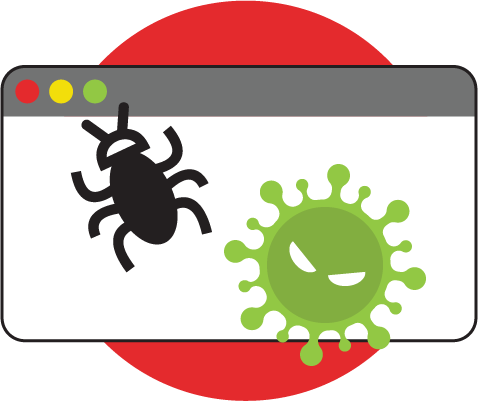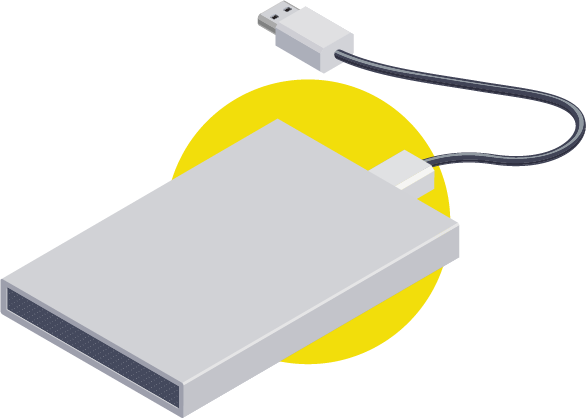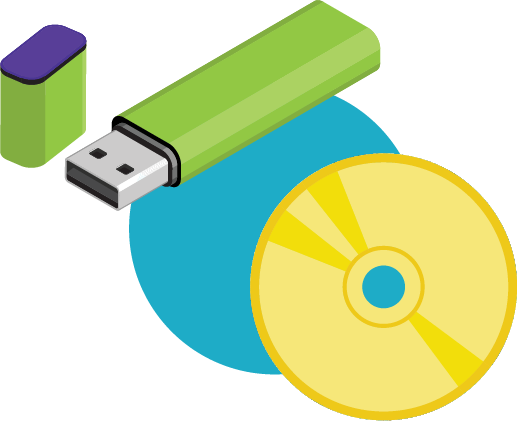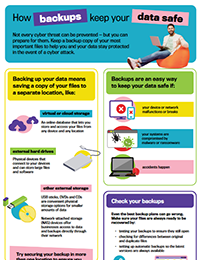
Not every cyber threat can be prevented - but you can prepare for them. See how keeping a backup copy of your most important files can help you and your data stay protected in the event of a cyber attack.
Backing up your data means saving a copy of your files to a separate location, like:
Virtual or cloud storage
An online database that lets you store and access your files from any device and any location
External hard drives
Physical devices that connect to your device to store large files and software
Other external storage
USB sticks, and even DVDs and CDs, offer convenient physical storage for smaller amounts of data
Network-attached storage (NAS) devices offer businesses access to data and backups directly through their network
Try using at least two storage options. The more ways you back up your data, the better!
Backups are an easy way to keep your data safe if

your device or network malfunctions or breaks

your systems are compromised by malware or ransomware

accidents happen
Check up on your backups
Even the best backup plans can go wrong. Make sure your files are always ready to be recovered by:
- testing your backups to ensure they still open
- checking for differences between original and duplicate files
- setting up automatic backups so the latest versions are always available
Get more tips to protect your data and devices at
GetCyberSafe.ca



